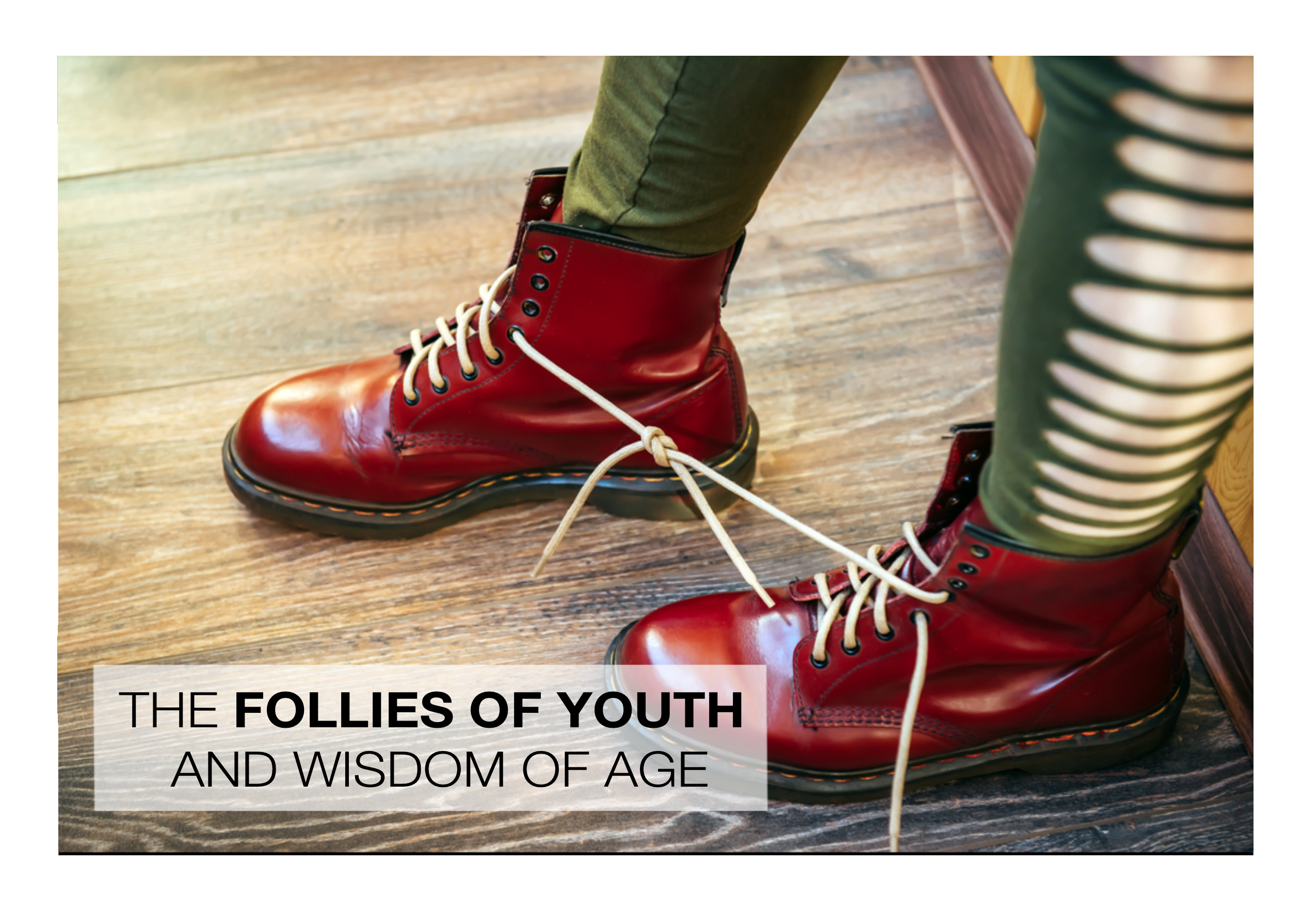It’s been said, youth is wasted on the young. It’s also been noted that the young are quick to claim wisdom not yet earned. As Oscar Wilde once wrote, “The young are always ready to give to those who are older than themselves the full benefits of their inexperience,” and “to get back one’s youth one has merely to repeat one’s follies.”
These follies of youth are expected and forgivable, up to a certain age. It’s when boastfulness and claims of experience outlive the individual’s youth, that it becomes inexcusable and potentially detrimental.
On numerous occasions, clients have bemoaned their adult children’s failings. They make ill-advised decisions, display foolishness far beneath their years, and otherwise embarrass themselves and their families, all under the guise of youthful indiscretions. Lessons aren’t learned, messages are missed, and opportunities are potentially lost.
The problem is that perils often grow with age. Talk to a parent whose child was shy of their 18th birthday and had a run-in with the police, versus one who already turned 18. Sometimes, “age of majority” has little to do with maturity but the cost can be significant.
If you’re a parent, you know – kids often don’t want to listen, certainly not to their parents. Can you blame them? When we were kids, we didn’t want to hear from our elders. We – just as our kids today – wanted to prove to them that we are right.
However, the costs of such obstinance grows with each passing year, even if maturity does not.
So, how does the parent help impart the wisdom of years on a closed mind?
Sometimes, it’s simply a matter of letting go. Let the child make their mistakes. “Experience” cannot be learned from a book or the advice of an elder. You can’t tell a child they will learn to ride a bike by falling off or pass their next exam by suffering the shame of failing the last one. It’s called “experience” for a reason.
The reality is, things don’t always work out as planned on paper, but only the reality of failure brings the lesson. Economic theories are instructional on paper. But reality is a much more abject teacher and taskmaster.
Lessons should also teach about compromise. Only through give-and-take can society advance. If you only measure life by wins and losses, you’ll push away others who otherwise would have shared a win-win with you. We often live in the gray area. In relationships, especially those prone to conflict, the search for black and white only perpetuates the fight.
Such is the folly of youth. It’s easy to be convinced that you’re always right when you’ve never experienced being told you’re wrong. Some politicians, celebrities and superstars are surrounded by “yes men,” not having the good fortune of having people with good morals telling them no. The input of sycophants and overly supportive elders – even parents – is rarely helpful in imparting the much-needed lessons. Ill-informed, they stay so far from reality their return will not come without serious intervention.
In a decade’s time, they look back and realise they’ve messed up – if they ever realise it at all. And by that time, decisions, relationships and any potential for positive outcomes may be lost.
Mr. Wilde also wrote, “A passion for pleasure is the secret of remaining young.” Youth needn’t be wasted on the young, as long as the young welcome the wisdom of the ages.
If you’re challenged to help your older teen or 20-something child recognise the understandable follies of their youth, let’s have a chat. Not only do I have children whom I’ve helped navigate their own challenges of aging, I’ve worked with many clients who have struggled and strived to help their own children find their way. Maybe an outside voice can bring some welcome guidance.

Leave A Comment